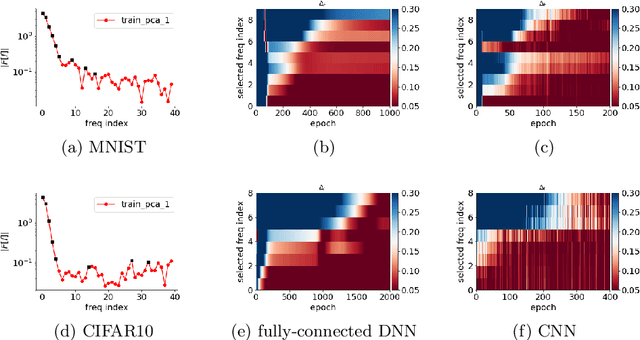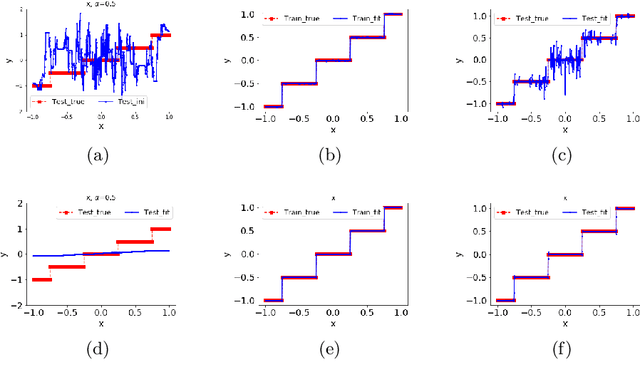Training behavior of deep neural network in frequency domain
Paper and Code
Nov 03, 2018



Why deep neural networks (DNNs) capable of overfitting often generalize well in practice is a mystery in deep learning. Existing works indicate that this observation holds for both complicated real datasets and simple datasets of one-dimensional (1-d) functions. In this work, for fitting low-frequency dominant 1-d functions, memorizing natural images and classification problems, we empirically found that a DNN, i.e., full-connected DNN or convolutional neural networks with common settings first quickly captures the dominant low-frequency components, and then relatively slowly captures high-frequency ones. We call this phenomenon Frequency Principle (F-Principle). F-Principle can be observed over various DNN setups of different activation functions, layer structures and training algorithms in our experiments. F-Principle can be used to understand (i) the behavior of DNN training in the information plane and (ii) why DNNs often generalize well albeit its ability of overfitting. This F-Principle potentially can provide insights into understanding the general principle underlying DNN optimization and generalization for real datasets.
 Add to Chrome
Add to Chrome Add to Firefox
Add to Firefox Add to Edge
Add to Edge